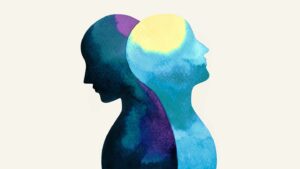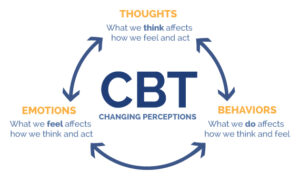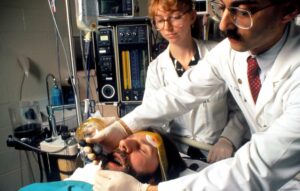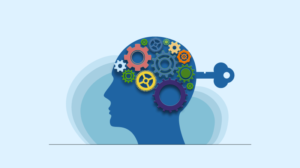Bipolar disorder is a serious mental illness that can be difficult to manage and treat. It affects your mood, energy level, and ability to think clearly. Unfortunately, there is no cure for bipolar disorder; however, it is possible to manage the symptoms and live a happy, successful life with this condition. Therapy is an important part of managing bipolar disorder and can help you learn how to cope with your symptoms and live a healthier life. In this article, we’ll explore the types of therapy available for people living with bipolar disorder and how they can help you better manage your condition.
Contents
What is Bipolar Disorder?

Bipolar disorder, also known as manic-depressive illness, is a brain disorder that causes unusual shifts in mood, energy, activity levels, and the ability to carry out day-to-day tasks.
Symptoms of bipolar disorder can include:
- Mood swings from high (mania) to low (depression)
- Extreme changes in energy level
- Irritability or abnormally happy or outgoing periods followed by periods of depression or anxiety
- Risky behavior during manic phases, such as spending sprees, impulsive sex, and alcohol or drug abuse
- Difficulty concentrating and making decisions
The exact cause of the bipolar disorder is unknown, but there are several factors that may be involved. These include genetics, brain chemistry, and environmental factors such as stress.
People with bipolar disorder can benefit from a variety of therapeutic approaches to help them manage their symptoms and live healthier lives.
Types of Therapy for Bipolar Disorder
There are many different types of therapy that can be effective for treating bipolar disorder. Some of the most common and well-researched types of therapy include:
Cognitive Behavioral Therapy

One of the most widely used and effective types of therapy for treating bipolar disorder is Cognitive Behavioral Therapy (CBT). This type of therapy focuses on identifying and changing negative thought patterns that can lead to mood swings. It also helps people learn new skills for regulating their emotions, such as relaxation techniques or problem-solving strategies.
One goal of CBT is to help identify triggers for manic or depressive episodes and develop coping strategies for managing them. It can also help individuals learn how to recognize the early warning signs of an episode, so they can seek treatment before symptoms get worse.
Interpersonal and Social Rhythm Therapy
Interpersonal and Social Rhythm Therapy (IPSRT) is another type of therapy that focuses on helping individuals to understand and work with the rhythms of their daily lives. IPSRT seeks to improve an individual’s ability to regulate circadian and social rhythms, as well as other biological processes that are often disturbed in bipolar disorder. It combines interpersonal psychotherapy techniques with traditional rhythm monitoring methods, such as actigraphy (the measurement of an individual’s activity and rest cycles).
IPSRT also has a strong educational component, as it helps individuals to understand and work with their unique rhythms. The goals of IPSRT are to help the person learn how to manage stressors in life, improve coping skills, and maintain a regular daily schedule.
Electroconvulsive Therapy

Electroconvulsive therapy (ECT) is a treatment for severe depression, bipolar disorder, and schizophrenia. It involves passing an electric current through the brain to induce a seizure. ECT can be an effective treatment when other methods have failed.
ECT is usually done in a hospital setting under anesthesia. A doctor will pass an electric current through your brain while you are asleep. The seizure usually lasts for less than one minute. You will not remember the procedure or the seizure itself.
ECT can cause some short-term side effects, such as confusion, headache, and muscle soreness. These side effects typically go away within a few days. ECT is generally safe and has few long-term side effects.
Dialectical Behavioral Therapy
Another type of therapy is Dialectical Behavioral Therapy (DBT). DBT is a type of cognitive-behavioral therapy that focuses on helping people change patterns of behavior and thinking. It is based on the idea that all behavior has both a biological and psychological component, as well as an environmental component. Also, it seeks to help clients learn new skills to better manage their emotions and improve their relationships with others.
It focuses on helping individuals understand how their thoughts, feelings, and behaviors interact in order to better manage negative situations. DBT also helps individuals learn how to accept themselves as they are without judgment or criticism. By learning new skills such as distress tolerance, interpersonal effectiveness, emotion regulation, and mindfulness.
Cognitive Therapy

Another of the most popular therapies is cognitive therapy. This focuses on identifying and changing any negative thinking patterns that are affecting a person’s behavior or emotions. It uses techniques like guided self-talk, thought-stopping, problem-solving, and restructuring to help challenge the client’s mental processes and replace them with more helpful ones. Through this type of therapy, clients learn to view their thoughts, feelings, and behaviors in a more positive way.
This can help them become better problem solvers, develop healthier coping skills, and overcome obstacles that might otherwise hold them back. In some cases, cognitive therapy is used to treat depression and anxiety by helping the client identify patterns of thinking or behavior that are contributing to their symptoms.
Psychodynamic Therapy
One of the main goals of psychodynamic therapy is to help patients gain insight into their feelings, thoughts, and behaviors. By exploring conscious and unconscious motivations, therapists can help clients better understand why they act in certain ways. This understanding can lead to more effective coping skills and improved relationships with others.
The therapist may also provide feedback about the patient’s behavior and offer strategies for managing it. Psychodynamic therapy is based on the belief that unresolved conflicts from the past can have a powerful influence on current behavior, and understanding these conflicts can lead to meaningful changes in the present.
Acceptance and Commitment Therapy
An important part of Acceptance and Commitment Therapy (ACT) is acceptance. This means that the individual must accept their current situation, regardless of how difficult it may be. Once they accept their current reality, they can start to work on changing it through values-based action.
Values-based action involves promoting behaviors that are consistent with the individual’s core values. These behaviors may be anything from spending time with family to volunteering in the community. The goal of values-based action is to help the individual build a life that has meaning and purpose, even if it doesn’t involve removing or changing their current suffering.
Existential Therapy

One of the primary goals of existential therapy is to help individuals create a sense of purpose and meaning in their lives. The therapist helps clients recognize that life is filled with choices, and encourages them to take responsibility for their decisions. Through this process, clients can develop a greater understanding of themselves and their place in the world.
Existential therapists emphasize the importance of understanding the human condition and helping clients come to terms with their mortality. They also encourage individuals to explore the consequences of their actions, and how they can make positive changes in their life. Clients are asked deep questions about their values, beliefs, and attitudes towards life in order to gain a better understanding of why they act the way.
Rational Emotive Therapy
An important component of rational emotive therapy (RET) is the use of cognitive restructuring to help individuals identify and challenge irrational thoughts. This process involves helping clients recognize their thought patterns, explore alternative ways of interpreting events, and develop new strategies for responding to difficult situations.
Through RET, therapists aim to help people reduce emotional distress and change problem behaviors. The goal of rational emotive therapy is to help individuals replace irrational beliefs with more realistic and healthy thoughts, ultimately leading to a greater sense of well-being.
RET has consistently been found to be effective in treating a variety of psychological issues such as depression, anxiety, phobias, relationship problems, anger management difficulties, and other emotional concerns.
Which Type of Therapy Is Right For Me?

There are many types of therapy, but not all types are right for everyone. That’s why it’s important to find a therapist that understands your individual needs and can provide you with the best possible treatment.
When choosing a type of therapy, consider what issue or concern you’d like to address. Some of the factors that can influence your decision include:
- Your personal beliefs and values
- Your past experiences with therapy
- Your mental health diagnosis (if applicable)
- The severity of the problem
Depending on the type of issue or concern you’re dealing with, there are different types of therapy that may be more appropriate. You can also talk to your potential therapist about which type of therapy they think would be best for you.
Conclusion
Therapy for bipolar disorder can be a complex process, but it is worth the effort. The right combination of medication and therapy can help individuals with bipolar disorder manage their symptoms, gain insight into their condition, and lead healthier more productive lives. While there are many treatments available to treat bipolar disorder, seeking professional help from an experienced mental health provider is the best way to find relief and get your life back on track. With the right approach to treatment, individuals with bipolar disorder can find long-term stability and wellness.
For more information, please contact MantraCare. Bipolar disorder is a mental illness characterized by extreme shifts in mood, energy, and activity levels. If you have any queries regarding Online Bipolar Disorder Counseling experienced therapists at MantraCare can help: Book a trial Bipolar Disorder therapy session


